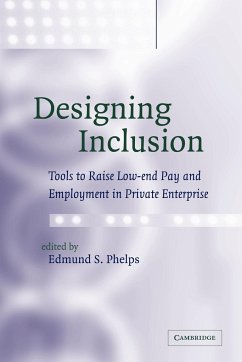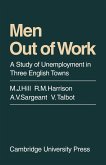An inclusion failure has become highly visible in the advanced economies of the West. Too many able-bodied people are subject to chronic joblessness and, when employed, cannot earn a living remotely like that in the mainstream of the population. One policy response has been to give such workers a range of goods and services without charge, another has been to single out some groups for tax credits tied to their earnings. However, many of the welfare programs actually weaken people's incentive to participate in the labour force and wage-income tax credits appear to have made hardly a dent in joblessness. This volume brings together leading economists to present four studies of methods to rebuild self-sufficiency and boosting employment: a graduated employment subsidy, a hiring subsidy and subsidies for training and education. It is of interest to anyone with a serious interest in the economics of subsidies to raise inclusion.
Hinweis: Dieser Artikel kann nur an eine deutsche Lieferadresse ausgeliefert werden.
Hinweis: Dieser Artikel kann nur an eine deutsche Lieferadresse ausgeliefert werden.








